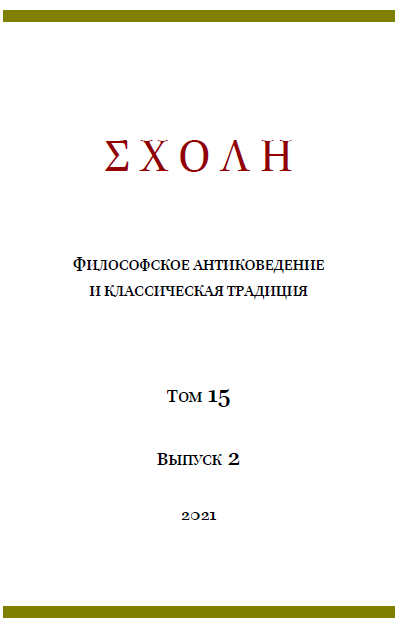ЭРОТ И ЖЕЛАНИЕ: ДЕВИАЦИЯ ТИРАНА И ФИЛОСОФА
EROS AND DESIRE: THE DEVIATION OF THE TYRANT AND THE PHILOSOPHER
Author(s): Irina ProtopopovaSubject(s): Ancient Philosphy
Published by: Новосибирский государственный университет
Keywords: Plato; Eros; desire; transcendent; “in itself”; “in relation to the other”;
Summary/Abstract: The article deals with a splitting undergone by Plato’s Eros and desire, into opposite, deviant poles represented, respectively, by philosopher and tyrant. The author shows how different types of deviation are formed depending on the understanding of the desire and the good, and the fixation on the ways to achieve them. This is due to identification and deidentification in relation to various images of self, but also with the “transcending”, which in turn is related to two main principles of the existence of things, “in itself” (τὰ αὐτὰ μὲν καθ' αὑτά) and “in relation to the other” (τὰ δὲ πρὸς ἄλλα). Socrates, realizing the “unsubstantiality” of self (οὐδὲν ὤν, Smp. 219a2), liberates himself and helps others to get rid of false ideas about themselves and go out into what is “transcendent”, “in itself”. The tyrant, on the contrary, always identifies with his want and the way to overcome it, and is increasingly immersed in the infinitely “other”, finding himself, as a result, in the “beyond the realm of false pleasures” (R. 587c). In the images of two divergent “erotic manias”, Plato implements a complex and ambiguous dialectic of "Same" and "Other".
Journal: ΣΧΟΛΗ. Философское антиковедение и классическая традиция
- Issue Year: XV/2021
- Issue No: 2
- Page Range: 926-934
- Page Count: 9
- Language: Russian

